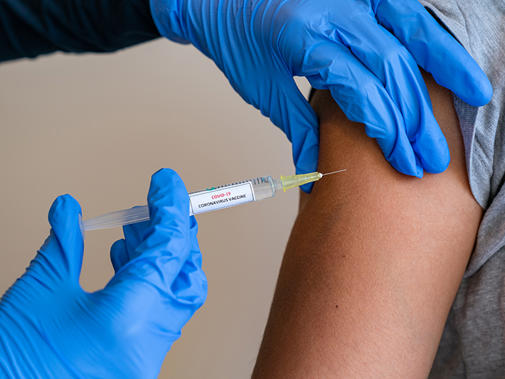Population health inequalities, under-resourced public health services and Government inaction worsened the effect of the pandemic on the UK, according to reports published by the BMA.
Long-standing disparities in health and wellbeing and inadequate investment in services providing preventive healthcare measures saw the UK enter the pandemic on the ‘backfoot’, the final reports from the association’s inquiry into the COVID-19 pandemic have concluded. These weaknesses in the UK position were compounded by being too slow to react to the emergence of COVID-19, to slow to introduce public health measures and interventions and too often inconsistent with public health messaging, particularly in England.
Published on 28 July the two reports examine respectively the public health response by UK governments to COVID-19 and the effect of the pandemic on population health and health inequalities.
Outlining a range of findings and recommendations, the reports emphasise that deteriorations in public health services and overall population health were the result of policy failures of successive UK governments, while adding that such shortcomings needed to be addressed as a matter of urgency.
It said: ‘A nation’s capacity to weather the storm of a pandemic is dependent largely on the state of its population health; a healthier population is a more resilient population. Unfortunately, in this respect, the UK entered the pandemic on the back foot: the state of population health was poor, and health inequalities were high.
‘The failure of governments across the UK to adequately fund the services which support people’s health over the previous decade hampered efforts to address such widespread problems.
‘The long-standing inadequate investment in public health has meant that organisations with public health responsibility have found it increasingly hard to plan and commission public and preventative health interventions [while] the policy of austerity implemented for much of the decade preceding the pandemic saw a significant decrease in funding for both public health and UK healthcare spending more broadly.’
Unequal burden
Drawing on data from external studies, as well as from the BMA’s COVID tracker and viewpoint surveys conducted between 2020 and this year, the reports have reached a broad range of conclusions and subsequent recommendations which the association is calling for the UK’s public inquiry into the pandemic to consider.
These include findings that the pandemic had an unequal effect on the health of individuals and communities.
In particular, the fifth report ruled that older people, the disabled and those classed as clinically extremely vulnerable all having experienced worse outcomes while minority ethnic groups saw higher death rates while those living in the most deprived parts of the UK were more negatively affected than those in the least deprived areas.
The association’s fourth report into the public health response also highlighted that reorganisations of public health bodies prior to the pandemic left services poorly placed to address a pandemic, while a decade of underinvestment ‘hindered the immediate response to the pandemic’.
Furthermore, staff shortages in public health specialties limited the level of expertise available to decision makers at local and national levels, while UK pandemic preparedness prior to COVID was found to be too limited with potentially valuable past lessons not implemented, where the UK had focused largely on an influenza-style pandemic.
'Not properly equipped'
 BANFIELD: The Government should be ashamed
BANFIELD: The Government should be ashamed
Describing the findings of the final two reports as ‘shocking’, BMA council chair Philip Banfield said a failure to prepare for a pandemic coupled with years of underfunding in health prior to COVID-19 had hampered the NHS’ response.
He said the Government should be ashamed and held accountable for its failings and inadequacies in its handling of the pandemic, and that he hoped the BMA’s reports would help to inform the national public inquiry into COVID.
He said: ‘The extent to which the UK Government failed to respond to COVID-19 quickly enough and seek to address existing health inequalities made the pandemic worse for thousands of people and makes for shocking reading in these reports.
‘The UK Government’s failure to prepare and take charge of the evolving crisis meant that the success of the vaccine rollout, for example, was undermined by avoidable mistakes. As set out in our fourth report, locking down too late, on more than one occasion, inconsistent public messaging about the virus, and decisions to “reopen” society too early, for the sake of political narrative, all hindered the ability to contain the spread of the virus – things the BMA repeatedly advised against.
‘The BMA also consistently raised concerns about the number of ethnic minority healthcare workers who were being disproportionately affected by COVID-19 and fought for risk assessments to be introduced to protect those working on the front line.
‘As our fifth report highlights, this was a much wider problem, underpinned by long-standing and deep-seated inequalities that then impacted the effectiveness of the UK Government’s response.
‘It’s undeniable that decades of underfunding and under-resourcing meant that our public health systems were not properly equipped to handle a pandemic, and a chronic reluctance to address worsening health inequalities led to a gross imbalance of suffering across the nation.
‘The consequences of these mistakes will be felt for years to come, and the UK Government, as well as being ashamed, must be held accountable. We know what needs to be done and Government must act on the recommendations we’ve set out to make things both right and fair for the future.’

